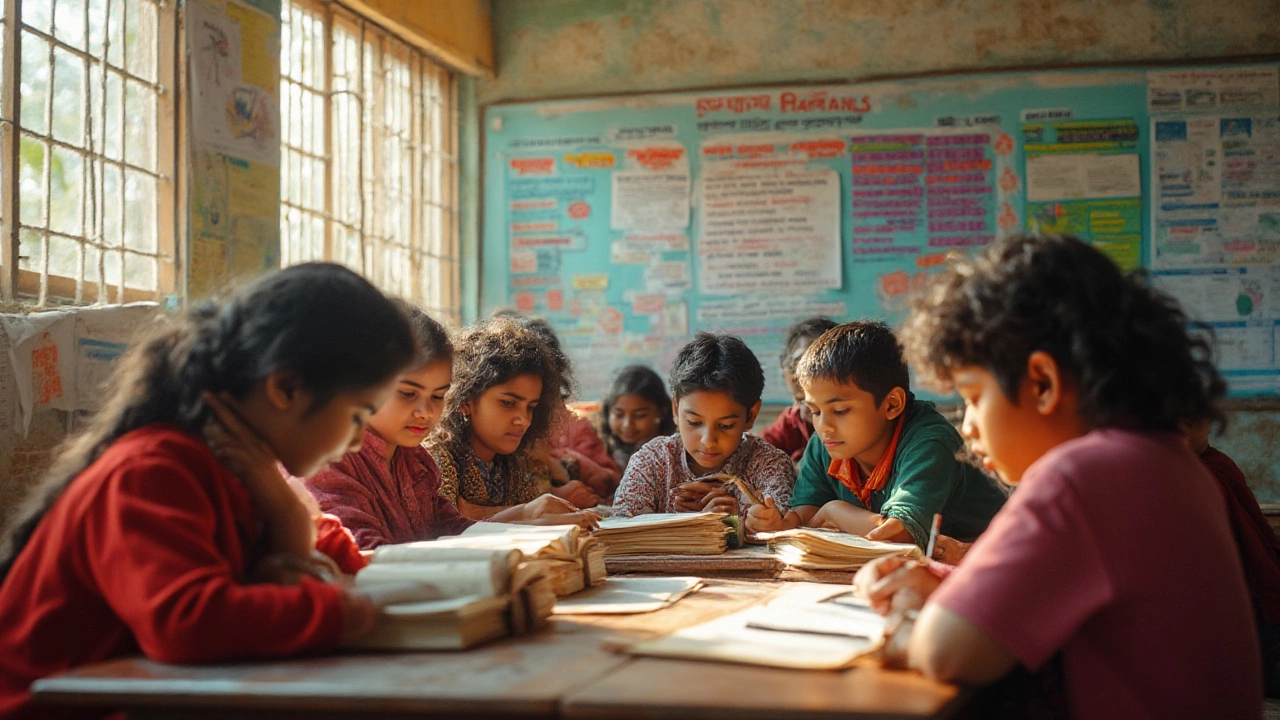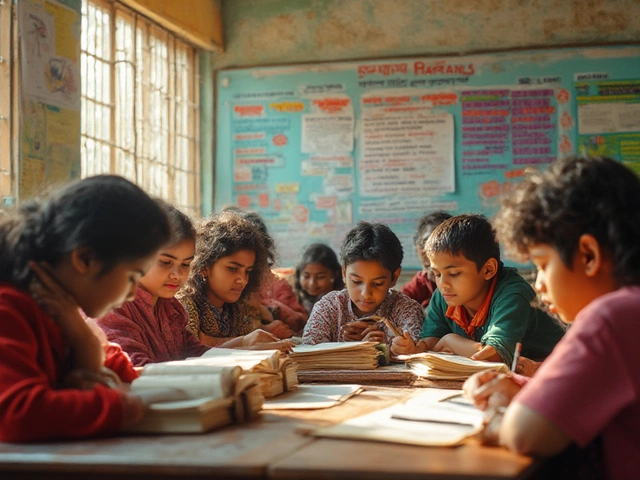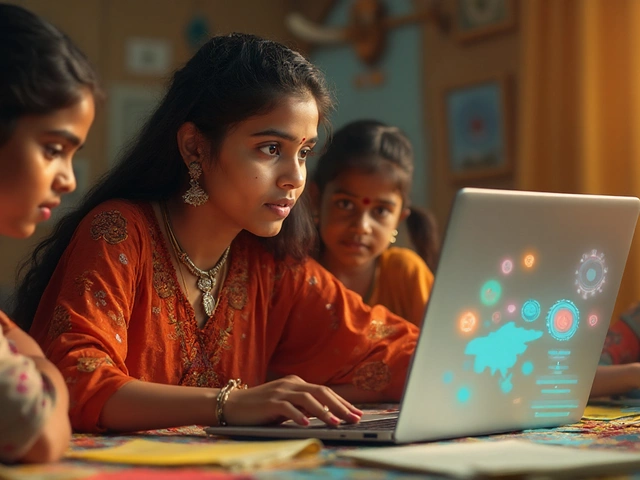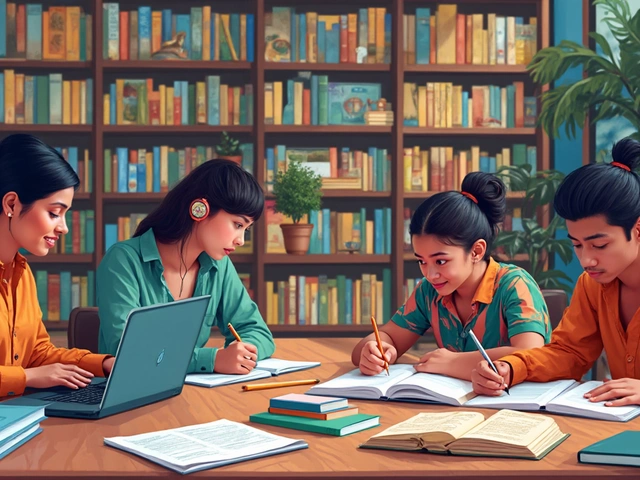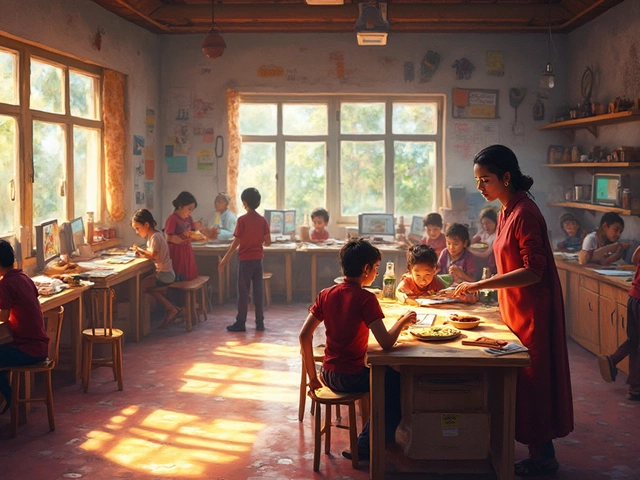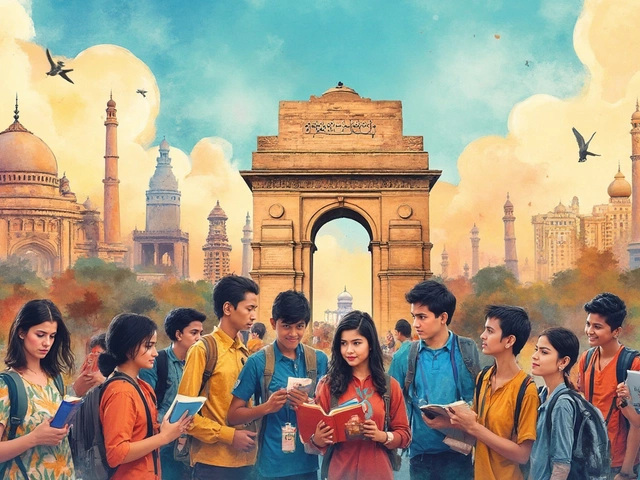Picture this: two ambitious teens living on opposite sides of India, both equally sharp and driven. One is sweating over a stack of thick history books, struggling with exhaustive essays, while the other memorizes formula sheets, honed for a precise, high-stakes science exam. They’re both aiming for the same big future, but their academic journeys look wildly different. The question here isn’t who has it tougher—it’s which Indian board is making things toughest in the first place? That debate is tried, tested, and endlessly argued—in tutors’ living rooms, WhatsApp parent chats, and TikTok explainers alike. The pressure is real, the opinions are loud, and the answer? Well, it’s not as clear-cut as you’d think.
Breaking Down the Big Four: A Closer Look at India’s School Boards
The Indian education scene is dominated by four major players: CBSE (Central Board of Secondary Education), ICSE (Indian Certificate of Secondary Education), State Boards, and the newer kid on the block, IB (International Baccalaureate). Think of each as a different training ground with its own playbook, strengths, weaknesses, and, most importantly, quirks that shape what 'tough' really means for the students caught in their crosshairs.
Let’s start with CBSE, the board most associated with coaching institutes, engineering, and medical hopefuls. Officially, over 27,000 schools in India are affiliated with CBSE, and it boasts a curriculum designed for clarity, national-level entrance exams, and lots of objective-type questions. Where CBSE shines is its alignment with competitive tests like JEE and NEET. The course structure leans hard into Maths and Science, and it’s heavy on NCERT textbooks—famously concise and focused on concepts. If you talk to a CBSE student, they’ll tell you it’s all about predictability, clarity, and exam skills. But ask them if it’s ‘tough,’ and the answer changes depending on what you think is tough: conceptual clarity or rote learning?
ICSE, run by the CISCE board, is another beast entirely. Its syllabus is sprawling, with more subjects and compulsory coursework in English, social sciences, arts, and even internal assessments. This means students spend hours laboring over projects, essays, and practical work. ICSE’s English curriculum stands separate in its depth, turning out kids who can analyze Shakespeare before they’ve turned fifteen. An ICSE student will grumble (with pride) about heavy textbooks and how nothing ever feels ‘optional’. There’s also more pressure to achieve in every subject, not just pick favorites. Historically, ICSE has been framed as having a broader, more balanced and creative approach, but also more stressful because of sheer content volume and the focus on global competitiveness.
State Boards, which vary dramatically from Maharashtra to Tamil Nadu to West Bengal, are local, region-specific, and deeply relevant for state-level college admissions. State Boards often get a rep for being the ‘easy’ choice because of lower cut-off marks or more straightforward textbooks, but talk to any student prepping for a state-level medical seat, and they’ll call that a myth. There’s diversity here: some boards (like Tamil Nadu) are infamous for cramming, while others (like Kerala) are lauded for balance. Most State Boards deliver content in regional languages and focus more on local contexts, but they usually don’t match the depth or national focus of CBSE/ICSE.
Then there’s IB and Cambridge, beloved by international schools and those aiming overseas. If tough means global skills, research, essays, projects, and oral exams, IB takes the cake. But it’s also niche and limited mainly to urban, English-medium schools. The pressure here isn’t about syllabus density; it’s about rigor, independent thought, and original analysis.
Check out these hard facts comparing each board’s official workload, subjects, and approach:
| Board | Approx. Schools | Exams | Medium | Focus Areas | Project Work |
|---|---|---|---|---|---|
| CBSE | 27,000+ | National level, Objective + Subjective | English & Hindi | Maths, Science, Centralized Exams | Limited |
| ICSE | 2,700+ | National, Subjective, Detailed | English | Languages, Arts, Sciences, Humanities | Extensive |
| State Boards | Varies (1000s) | State level, Mostly Subjective | Regional + English | State Syllabus, Practical Skills | Mixed |
| IB | 200+ | Global, Subjective/Project/Oral | English | Inquiry, Research, Analysis | Extensive |
Just glancing at the numbers, the workload isn’t simply about book count or syllabus breadth. Each board is built for different end goals, college pipelines, and types of learners. The 'toughest' one? It depends—on your strengths, language background, and what you want next.
The Hidden Pressures: Beyond Syllabus to Student Life
You can’t call a board tough just by flipping through its textbooks, though. For most Indian students, pressure lands on their doorstep in sneaky ways: parental expectations, peer comparison, and the whispers that “this board is the ticket to success.” But if you crack open the daily life of a teen from each stream, you start noticing patterns—and real differences.
CBSE is notorious for its coaching culture. Almost every other student signs up for after-school tuition, prepping for entrance exams (think JEE, NEET) that are molded from CBSE content. This creates a grind mentality—school from 7 am to 1 pm, three-hour coaching in the evening, repeat. The pressure doesn’t just come from exams, but this relentless race. Ask a student from Kota, known for its coaching ecosystem, and they’ll talk about friends dropping out due to stress, not syllabus. It’s not the curriculum alone that’s tough—it’s the competition and expectations riding on it.
On the flip side, ICSE piles on academic stress with long question papers, internal assessments, and projects that bleed into weekends. Notice boards in ICSE schools burst with science fair announcements, literary debates, and project deadlines. This makes for well-rounded, articulate students—but burnout? Totally real. Some will tell you the analytical writing and elaborate marking schemes feel more like a university than high school.
State Boards rarely escape the pressure of high stakes—especially in states where top college admissions depend solely on board marks. In Tamil Nadu, for example, medical seats are handed out based on State Board scores, so students end up memorizing textbooks word-for-word. The stakes aren’t lower here—they’re just different. Language also matters: students switching boards (say, from Hindi-medium State Board to English-medium CBSE) struggle not because the content is tougher, but because the system speaks a new language, quite literally.
IB turns the stress dial up differently: instead of rote-learning or exam-centred teaching, students are grilled on projects, presentations, and critical essays. They feel the pressure to be creative, manage time, and develop an independent voice. It’s less about the number of hours spent cramming, more about juggling deadlines and original thinking. Yet, IB students are often insulated from the mass anxiety of national entrance exams like NEET or JEE, so the kind of pressure—and who feels it—is distinct.
A real kicker? Many kids change boards after Class 10, searching for easy marks or exam advantages. But switching doesn’t guarantee relief. In fact, adapting to a brand-new exam pattern, new language medium, and a shifted teaching style can be a stress bomb all its own.
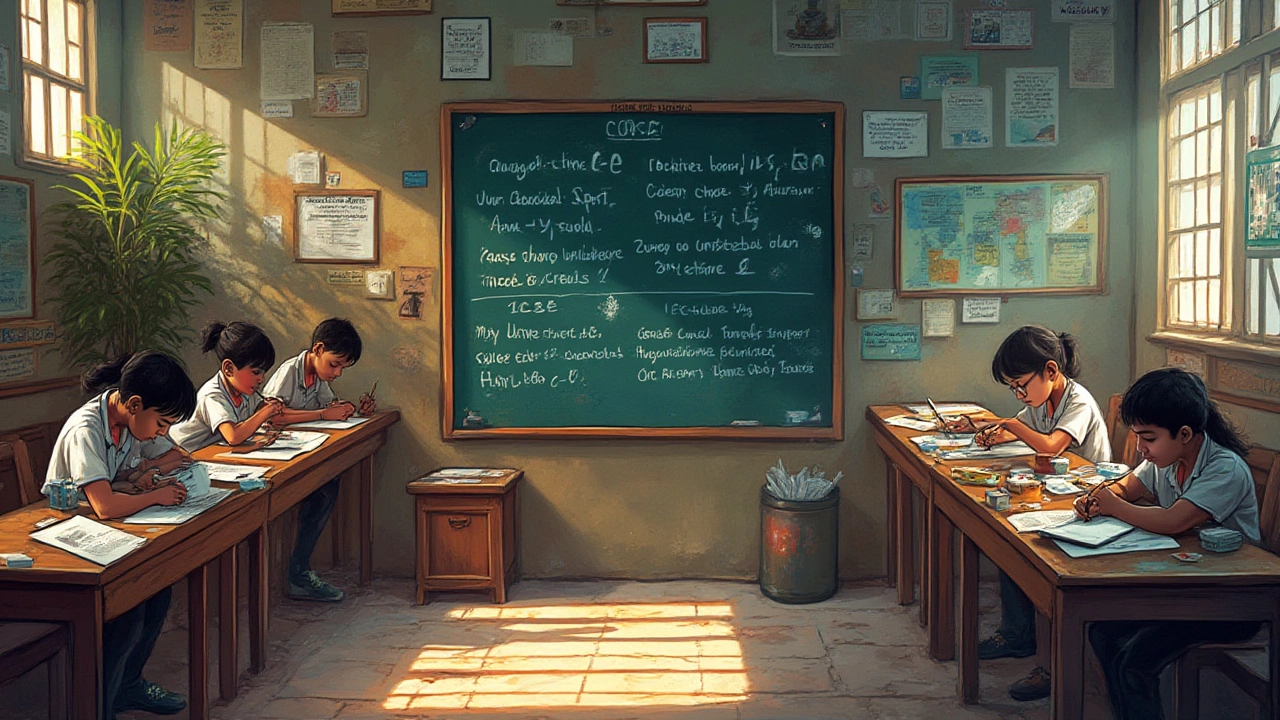
Which Is the Toughest? The Debate from Inside the Classroom
Teachers, parents, and toppers all have their takes on which Indian board deserves the “toughest” crown. If you travel from North to South or urban to rural, the answer keeps swirling. So let’s break down what actually matters when you ask, “Which is the toughest?”
- Syllabus Volume and Depth: ICSE is widely tipped for sheer content volume—thicker books, more papers, detailed marking schemes. The focus isn’t just on quantity but also the depth of answers expected, especially in English and humanities.
- Entrance Exam Alignment: CBSE is the undisputed king here. If your goal is to crack the JEE or NEET, the CBSE path is practically compulsory. The board itself may not be 'tough' in content, but the competition is brutal.
- Marking Strictness: Many think ICSE’s detailed marking means you rarely get full marks, whereas CBSE is seen as more student-friendly when it comes to exam evaluation and predictable patterns.
- Difficulty of Language: For students not fluent in English, ICSE and IB can be intimidating. State Boards, which offer content in the mother tongue, feel easier for them, but this has trade-offs when facing national/international exams.
- Practical Work vs. Theory: ICSE and IB weigh practicals heavily, with real marks for projects and presentations. CBSE only recently adopted internal assessments, often giving project work less weight.
- Future Focus: IB is heavy on skills that matter for universities abroad—independent research, presentations, and global curricula. Tough? Yes, but it has a different audience altogether.
So where does the science land? According to 2024 results, average pass percentages show a weird trend: ICSE scores highest (99.38%), CBSE at 93.60%, and many State Boards settle somewhere in between. But don’t let that fool you—higher scores don’t always mean it’s easier. Sometimes, it just means marking is more generous, or students are better prepared thanks to resources and infrastructure.
Every year, millions of families opt for CBSE simply because the board is accepted across Indian states, and major universities line up eligibility to CBSE standards. Same goes for schools pushing affluent city kids toward IB or Cambridge for that Ivy League dream. The rest? They follow local State Boards, either out of comfort, cost, or logistics. But ask around: many top school principals and education pros say the “toughest board” is really about student personality, learning style, ambition, and how much support you get outside the school gates.
Cracking the Code: How to Choose and Make the Most of Any Board
If you’re hoping for a definitive trophy for India’s toughest board, sorry—that hall of fame doesn’t exist. What does exist is a growing awareness that each of these boards sets different kinds of traps and opens different doors. So how should parents, students, and even teachers play the game smartly?
First, map your biggest goals. If you dream about AI labs at IIT or scoring big in medicine, CBSE streamlines you to the right national-level entrances and coaching networks. CBSE’s compact syllabus and clear concepts make it manageable—but you need to build test-taking speed and competitive edge. Here’s a tip: focus like a laser on NCERT textbooks for all subjects (even when coaching material seems overwhelming), and keep your mock test scores tracked as ruthlessly as your favorite cricketer’s batting average.
If you’re more about analytical writing, creative presentations, foreign language skills, or pursuing a non-STEM career, ICSE or IB might be your best fit. ICSE’s biggest hack? Get your hands on last five years' board papers—they repeat question types, even if they never repeat questions. For IB, don’t leave projects or extended essays to the last second; time management isn’t optional. Also, find peer groups to brainstorm with—collaborative learning lifts performance in project-driven systems.
Kids on State Boards shouldn’t underestimate themselves. Keep track of national and state-level exam notifications, and make use of open online resources—even if your local curriculum is focused and regional. State Board toppers in Andhra Pradesh or Kerala have gone on to win All-India Ranks in NEET and JEE, so don’t get thrown off by the 'state board is easy' myth. Learn English vocabulary early, because that will help crack national tests and widen college options.
One universal tip: don’t get obsessed with 'toughness'—get obsessed with your own best fit. Tough is personal. Some kids thrive in project-based learning. Others burn brightest in competitive entrance exams. Support and resources matter: the richest kids in an IB school don’t have an edge over a determined State Board student with YouTube tutorials and free e-books if the motivation matches up. Switching boards just to escape difficulty often backfires; you spend months relearning exam formats and language skills, only to find a whole new batch of hurdles.
For parents and teachers, swapping competitive anxiety for encouragement helps. Monitor your child’s mental health as closely as you track grades. It doesn’t matter how tough a board is if a student dreads school. And for students: no board is a magic ticket, no board is a death sentence. Success is more about persistence, knowing your own strengths, and building the skills the next step—college or career—really demands.
